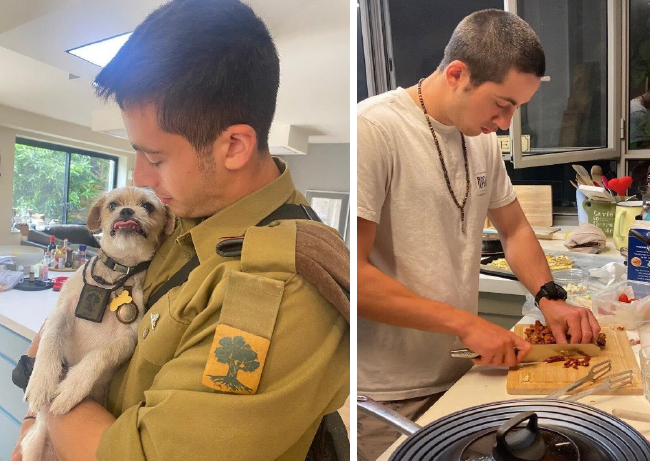By Leah Garber
Tomorrow, the tenth of the Hebrew month of Tevet, is one of four Jewish fast days to commemorate the destruction of the two Temples in Jerusalem. On this day, in 588 B.C., Nebuchadnezzar, king of Babylon, laid siege to Jerusalem, a siege that ended in the destruction of the city and of the Temple.
This day is also known as “General Kaddish” Day, honoring the memory of those who perished in the Holocaust whose place and date of death are unknown. It is a day on which the entire nation mourns for those who don’t have a day on the calendar to mark their passing, let alone a grave to mourn over.
Seventy-eight years have passed since the end of World War II and the Holocaust. The greatest disaster that befell the Jewish people ever. Six million were killed, and many of them at an unknown time and place. It is hard to imagine the pain of the families who survived the inferno but cannot mark and mourn the losses of their family members on the actual day they were murdered.
Who could imagine that 78 years later, in the sovereign state of Israel, we would face a horrific disaster in which there are once again families whose loved ones were massacred, but the date and place of their murder are unknown?
In some cases, after October 7, nothing but remains of mutilated bodies were found, evidence of entire lives cut short, of the cruelty they faced the second their souls left their bodies, making their way to a much better place.
But for others, no human remains were found to allow DNA identification. They may have been burned to ash or kidnapped to Gaza, still alive for a time and now murdered, and their bodies abandoned by a cruel enemy. These victims will be declared dead without a place of burial. The Unknown. What a sad title. It is a different time, but still another tragic story for the Jewish people.
The Hebrew calendar is full of celebrations and holidays. Also, quite a few days of mourning tell the story of the Jewish people from its beginning—the history of a persecuted, slandered people, a punching bag for false accusations. Our enemies were many and varied. From great empires to local tyrants, distinguished people of position and influence, as well as ordinary people, all have believed the lies that were spread and supported the gratuitous hatred to justify the attempts to obliterate the Jewish people.
These collective memories are burned into our DNA. They form our identity, values, and our longing for a homeland. A piece of land that will serve as a haven protecting us from the evil that we have experienced as a people for generations.
Those we have lost to this Iron Swords War were people who studied the annals of Jewish history; they marked the days of mourning and swore allegiance to protect the home that generations dreamed of and that finally, 75 years ago, was established.
They did not imagine that a day would come when the stories of their lives would join the pages of this history, where they would be remembered as the heroes of Israel.
Guy Bezeq was killed in a battle at the Kissufim outpost and left behind a list of things he wanted to do by the age of 20. Guy’s bucket list included being a positive force for his Scout group, making people feel good, traveling around the world, and finding the tastiest recipe for his favorite food, pasta.

I didn’t know Guy, but I’m sure that in his 19 years, he left a mark on everyone he knew. Surely, he made many people feel good. And yet Guy will no longer travel to exotic countries or taste the perfect version of the pasta he loved. In Israeli reality, dreams don’t always come true…
In mid-September, Adi Baruch and her partner Nevo enjoyed a day at a cotton field, where the bright white flowers had not yet been picked. Adi, a talented photographer, intended to take a series of pictures, but the background was not exactly to her satisfaction. In those moments, she didn’t know that a diamond engagement ring was waiting for her in Nevo’s pocket. Nevo planned to surprise Adi, kneel, and propose in the middle of the cotton field. Since Adi was disappointed with her pictures, Nevo decided to postpone and propose on her 23rd birthday, when she would hopefully have an even broader smile on her beautiful face. But Adi did not get to live to her birthday. A few weeks later, on October 12, the fifth day of the war, Adi, who insisted on enlisting in the army, was killed by a rocket. At her funeral, Nevo knelt and proposed to his dead bride. A bride who will never wear a white wedding dress or flaunt her sparkling diamond ring on her finger and smile happily at the camera.

These are just two painful reminders of great pain. Of lives that are now gone. Of dreams that will never be fulfilled, love stories that have been interrupted, and smiles that will no longer light up the world.
As if we did not already have enough days of mourning in our calendar to remind us of historical tragedies, since October 7, 76 such days have been added. With a heavy heart, I know that the end of the war is not near, and the end of sorrow is not yet in sight.
Together, united, we will overcome.
Leah Garber is a senior vice president of JCC Association of North America and director of its Center for Israel Engagement in Jerusalem.